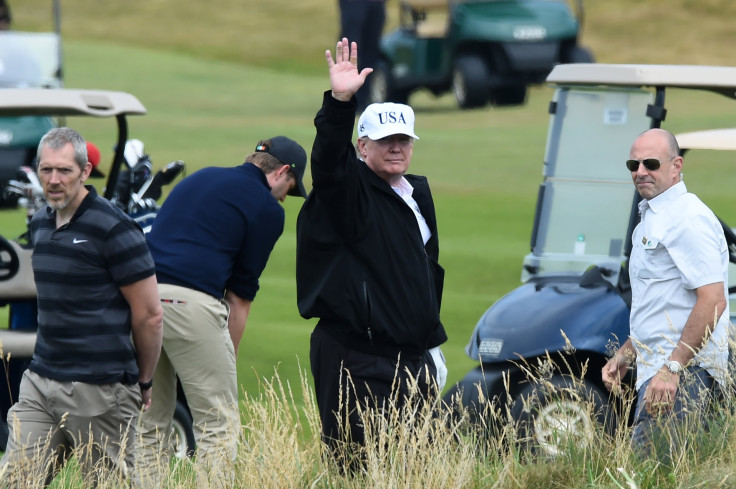Trump-Deutsche Relationship: After Years Of Lending, German Bank Reportedly Declined 2016 Loan For Golf Course

Deutsche Bank AG, which has been an under investigation for money laundering, declined to grant a loan to then-candidate Donald Trump in March 2016 in part because he was considered too divisive a candidate, according to a New York Times report Saturday.
The Times report also noted that the German multinational bank, which has been one of the few lenders willing to do business with Trump after his numerous bankruptcies, was concerned that if he won the election and defaulted it "would have to choose between not collecting on the debt or seizing the assets" of the president.
Trump had been seeking a loan for the Trump Organization, borrowing against the Trump National Doral golf course in Florida, to finance a golf property in Turnberry, Scotland, according to the Times.
Amanda Miller, a spokesperson for the Trump Organization, told the Times that "this story is absolutely false." A Deutsche spokesperson declined to comment.
While several big banks declined to lend to Trump in the early 1990s, Deutsche, looking to gain a foothold in the lucrative U.S. market, began in 1998 what would turn out to be a long business relationship with Trump that would include $2.5 billion in loans.
But the relationship would sour over the past decade. Trump sued Deutsche Bank and other lenders in 2008 for "predatory lending practices" due to the financing of a Chicago hotel and condominium project.
Bloomberg reported in December 2016 that Deutsche was looking to restructure Trump’s $300 million debt.
Rep. Adam Schiff of California, chair of the House Intelligence Committee, has publicly discussed plans to investigate Trump's records with Deutsche because of possible money laundering charges.
Frankfurt prosecutors raided Deutsche's headquarters in November in a money-laundering probe, alleging that between 2013 and 2018 the bank had help clients set up companies in tax havens while not alerting authorities that the accounts were used to transfer funds from criminal activities.
The bank in 2017 was fined $630 million by U.S. and U.K. regulators stemming from a $10 billion Russian money laundering scheme, and also had pled guilty and paid $2.5 billion in penalties in 2015 for interest-rate rigging.
© Copyright IBTimes 2025. All rights reserved.






















